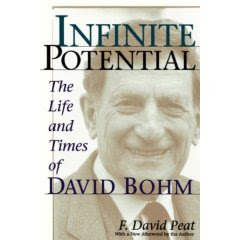 In my initial post back in October, Things Are Not As They Seem, I wrote how glad I was to hear an NPR commentator resist the urge to say in ‘a blink of the eye’ and say ‘in a flash’ instead. Alas yesterday another NPR reporter, I am sad to say, did not resist the urge. Beside the fact that I first published the idiom as a metaphor for unconscious cognition and intuition in 1997, I dislike the trendiness of the phrase. But it seems like I’d better settle in for a much longer run for the distressingly facile use of this my adopted intuitive soul child. Apparently Blink is being made into a movie---or so the scuttlebutt on the web claims.
In my initial post back in October, Things Are Not As They Seem, I wrote how glad I was to hear an NPR commentator resist the urge to say in ‘a blink of the eye’ and say ‘in a flash’ instead. Alas yesterday another NPR reporter, I am sad to say, did not resist the urge. Beside the fact that I first published the idiom as a metaphor for unconscious cognition and intuition in 1997, I dislike the trendiness of the phrase. But it seems like I’d better settle in for a much longer run for the distressingly facile use of this my adopted intuitive soul child. Apparently Blink is being made into a movie---or so the scuttlebutt on the web claims.It is being made by the people who made Syriana. I didn't particularly like Syriana. I suspect it is a guy movie. (Too broad in sweep on the one hand and not enough heart on the other.) Its message seems to be 1) everything is interconnected---which is also its subtitle 2) the good guys if they don't get killed turn out to be in cahoots with the bad guys, because everyone who survives just wants power---or something like that. I apologize to the makers of the film (and to George Clooney) if I have missed the more important message--- such as American capitalism turns even the good guys into bad guys. But that is not what stuck in my mind.
What links Syriana and Blink, I guess, is that they both keep jumping between a number of stories. Yet Syriana builds to something--- even though I didn't particularly resonate with the film. Blink doesn't build to anything at the conceptual level, though Galdwell is a good story teller. Rather one is left with a jumble of self-contradictory themes. Admittedly unconscious cognition and intuition are tough subjects to deal with. (Perhaps no one knows this better than me.) Yet the job of an author is to find a thread through the jumble---or at the very least to acknowledge the dissonance the material creates. Gladwell takes the kitchen sink approach and blurs over all the essential distinctions.
Why then has Blink been such a tremendous success? I think it comes from 3 things in addition to Galdwell's skill as a story teller. The first is the sheer power of the metaphor ‘a blink of the eye’ for intuition. Yet the metaphor is not original to Gladwell and he does not develop it. Rather it seems like an afterthought used as packaging to market the book. Well sometimes the wrapping paper is more valuable than what is inside.
The second is the nature of popular culture. Being a popular culture guru means staying a millimeter ahead of the crowd--- capturing a trend a second or two before it explodes. Unconscious cognition and intuition have become hot topics of scientific investigation. But let's look more carefully at what is happening here. With respect to intuition, science is finally catching up with experience. Blink in popularizing this material says what everyone knows---if they've ever looked at their thought processes. I have to conclude that an awful lot of people have not. Only then could it come as a revelation that sometimes we don't use rigorous analysis, and furthermore what we use instead works just as well most of the time, and often even better. But Blink gets it wrong because it mistakes figure for ground. Analysis, if it comes at all, for the most part comes after intuition--- and this is especially so in our personal lives, as the work of Antonio Damasio makes clear.
The third reason Blink has been so sucessful is the most interesting to me. Reading Blink is a little like going to a cool cocktail party where everyone is a little high and full of themselves for being at such a cool party. One feels ---why yes--- Glad and Well. I was not a sympathetic reader of this book, as you might well imagine, yet about a third of the way through, even I felt Glad and Well (henceforth G+W). It's as if he encoded a little bit of an illicit substance into the prose. I don't know how he did this. Perhaps it is because as Jeffrey Rosen said in his critique, the book “…succumbs to the fallacy that people with good ideas must be good people. Everyone in the book who gets psychology right is not only or mainly a bright person, he is also a noble human being.”
As soon as the discriminating reader comes down from the G+W high they will recognize that very little interesting or coherent has been said. Rosen called Blink “a book for people who do not read books." I got two thirds the way through and then skipped to the end. I don't recommend Blink; I recommend a glass of wine instead. But if you have already read it and have some insight into the G+W thing, please let me know.
For the Time Being is a book by Annie Dillard I have written about several times ( Oct 24 and Dec 4 posts). After reading 40 or so pages when I first got it, I put it down. It is heavy duty---not aimed at making one feel either G+W. A year and a half later, I picked it up again where I had stopped. Reading a few pages at a time before I went to sleep, I found it to be one of the most compelling books I have encountered. Page after page was packed with insights and a quirkiness that penetrated to my core. Some nights I would only read over the few pages I had read the night before. I still keep it by my bedside. Sometimes I open it at random, and contemplate one of its passages. In one of my many favorites, Dillard says:
Mostly, God is out of the physical loop. Or the loop is a spinning hole in his side. Simone Weil takes a notion from Rabbi Isaac Luria to acknowledge that God's hands are tied. To create, God did not extend himself but withdrew himself; he humbled and obliterated himself, and left outside himself the domain of necessity in which he does not intervene. Even in the domain of souls, he intervenes only “under certain conditions.”
Does God stick his finger in, if only now and then? Does God budge, nudge, twist, help? Is heaven pliable? Or is …praying for things and events, for rain and healing--- delusional?
For the Time Being, like Blink, jumps back and forth between a number of interconnected “stories.” Yet unlike Blink, it builds to a crescendo that unifies all the content and brings the theme of interconnectedness home in an extraordinary meaningful and unexpected way. Though it didn't make me feel G+W in a cocktail party sense, it did something much more important. It left me feeling very small and very big (vS+vB) both at the same time. Dillard's book considers the most difficult questions of existence and then manages to reframe them in a very different sense high. One is also given an interesting mission---should one choose to accept it.


If the Syriana people are really interested in the theme of interconnection and in conveying some of its depths, I suggest they should make a movie out of For the Time Being instead of Blink. I admit it would take a lot of skill and also may require some rearranging. But imagine the cinemagraphic power of a movie that keeps switching between historically important archeological digs on the inhospitable steppes of China, Jerusalem, a maternity ward, and the ceramic soldiers in Xian.  Also imagine Annie Dillard as narrator, and my favorite palentologist/theologian Teilhard de Chardin ( played by George Clooney of course) weaving in and out. That is Teilhard to the left. Finally imagine cameo appearances by Isaac Luria, Simone Wein, and many of the other deeply feeling and colorful theological thinkers of the ages.
Also imagine Annie Dillard as narrator, and my favorite palentologist/theologian Teilhard de Chardin ( played by George Clooney of course) weaving in and out. That is Teilhard to the left. Finally imagine cameo appearances by Isaac Luria, Simone Wein, and many of the other deeply feeling and colorful theological thinkers of the ages.
In fact, you might even say that For the Time Being--- a story about existence--- is the real Blink. Perhaps this is part of what is beginning to bug me about the overuse of the phrase 'a blink of the eye.' Because it is so in, people feel cool and G+W when they say it. However the idiom used in its traditional sense has an undertone of sadness that is experienced largely at an unconscious level. Dillard’s book, in part by heading directly into this sadness and into the heartache of existence, comes out the other side. It brings the powerful (and grounded) sense of Being that comes from accepting what is.















3 comments:
You are winking not blinking.
Fred
Gladwell's strength is in reframing the context of the problem.
He won't reach any unifying conclusions, but I don't think that's necessarily his position given that he is a journalist and not a scientist.
Gladwell is the master of the "Eureka" moment. Instead of gaining closure from his books, I gain a sense of wonderment and tell myself "I must read more about this subject".
I think that Rosen only got it half right when he said that Blink is “a book for people who do not read books." I think that Blink is a book for those who don't read social psychology texts. For those who are not particularly well versed in the domain Gladwell opens the window to reveal the dust-storm of research in psychology.
Gladwell recently wrote a peice for the New Yorker outlining the useage of neural networks in deciding which movies to distribute. Most would probably find it fascinating that such a "fuzzy logic" algorithm exists but I was less than excited. But I knowledgable in the field and am framiliar with the concepts of NN's.
Gladwell should be commended for attempting to bring largely academic subjects to the masses.
The coctail party high that you speak of is your mind churning over the ideas being presented. While conclusions may not be reached, wonderment has taken place and isn't that deserving of something?
Jim
RunFatBoy.net
Jim,
I appreciate your comment. I do understand that Gladwell has brought the topic of intuition and unconscious cognition to the attention of the “masses,” as you say. I might perceive this more as a service and less as self-aggrandizement on Galdwell's part if he and his publisher had not refused my request to cite my prior publication of the metaphor for intuition “a blink of the eye” in the paperback version of Blink.
I was not completely clear about your reframing comment. Perhaps you mean that Gladwell reframed the research he presented with the metaphor “a blink of the eye.” To the extent it worked this way, I would hope Gladwell’s sense of integrity and fair play would push him to cite my prior publication of this extremely powerful metaphor for intuition.
Otherwise I do not feel that Gladwell did any reframing of the dust-storm (your metaphor) of research he presented in his book---except to frame if for a popular audience. To reframe something means to provide a new, coherent, and intellectually as well as emotionally salient perspective from which to view the material, which is exactly what Gladwell did not do in the text of the book.
I would like to use your own comments as an example of what I mean and what I found wrong with Gladwell's book. On the one hand you say is that my feeling of being at a cocktail party came from a sense of intellectual stimulation and wonderment because of the ideas. Yet you also imply---by using your own reaction to the story about neural networks and your comment about Jeffery Rosen---that I did not find the material particularly exciting because I was already familiar with it. This is not a coherent frame because it contradicts itself and ends up pointing in two different and opposite ways. This is akin to what Gladwell does in Blink---without acknowledging the dissonance.
You of course were thinking out loud, which is legitimate in comments to blog pieces (perhaps even in blogs), talking with friends, brainstorming, etc. However the job of writers and journalists is to find a consistent framework for the material they present. The deeper the framework, the more enlightening the book. What Gladwell did was string a bunch of research on unconscious cognition into an---at least initially---entertaining narrative. This is probably why it gave me a sense of being at a cool cocktail party; I can assure you it was not intellectual ferment or wonderment. This lack of an intellectually enlightening framework was what I understand Jeffrey Rosen was pointing to when he said it was a book for people who don't read books.
Lois
Post a Comment